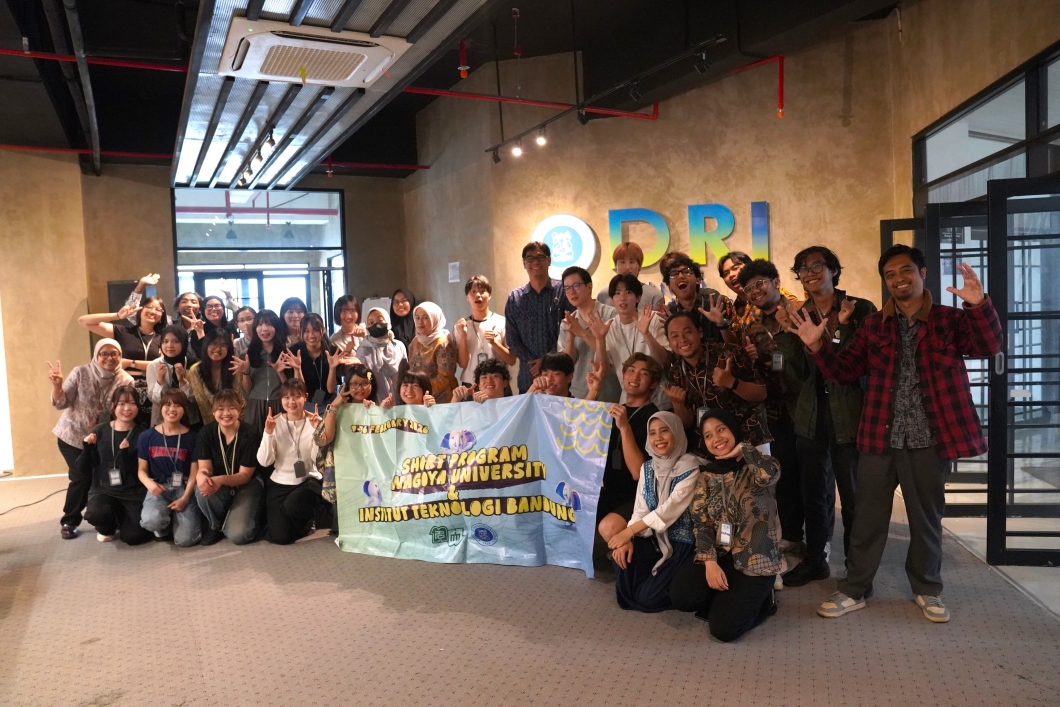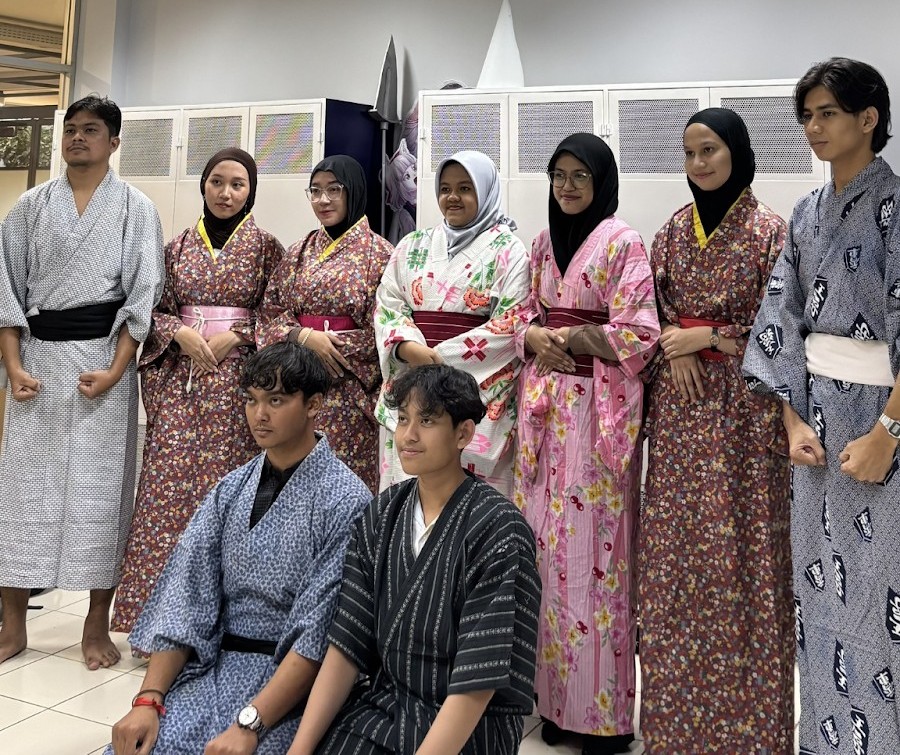Partnering With Japanese Company, ITB Launches ADAPTMENT Lab Initiative for Adaptive Development
By M. Naufal Hafizh, S.S.
Editor M. Naufal Hafizh, S.S.

BANDUNG, itb.ac.id — In collaboration with NOSIGNER, Institut Teknologi Bandung (ITB) launched the ITB ADAPTMENT Lab as part of ADAPTMENT.org (https://adaptment.org/). This launch was marked by an online seminar that was also attended by the CEO of NOSIGNER, Eisuke Tachikawa, and the deans of collaborating schools and faculties on Thursday, February 29, 2024.
NOSIGNER is a Japanese company engaged in strategic design by encouraging the creation of creative and evolutionary ideas. The collaboration between NOSIGNER and ITB in the ADAPTMENT Lab project was done by partnering with four schools and faculties, namely the Faculty of Earth Sciences and Technology (FEST), School of Life Sciences and Technology (SLST), Faculty of Arts and Design (FAD), and School of Architecture, Planning, and Policy Development (SAPPD). The objective of this collaboration is to incentivize the development of ideas and technology related to climate change adaptation toward sustainable development.
The event started with an opening remark from the Vice Rector for Finance, Planning, and Development of ITB, Prof. Ir. Muhamad Abduh, M.T., Ph.D. He stated that humans were currently facing numerous unprecedented issues. This drove the need for creative and adaptive solutions that could solve said issues. The ITB ADAPTMENT Lab was consequently established with the hopes of creating adaptive thinking and new solutions through multidisciplinary initiative.
“This lab is the initiative of four ITB faculties, NOSIGNER, and several stakeholders from Indonesia and Japan. Its objective is to reconstruct a development paradigm for the present and the future,” said Prof. Abduh.

Afterward, the first presentation session was delivered by the CEO of NOSIGNER, Eisuke Tachikawa. He stated that the ADAPTMENT concept was a combination of “adaptation” and “development.” In general, ADAPTMENT is a new design concept that evaluates conventional development paradigms to be more adaptive to global changes. Therefore, the ITB ADAPTMENT Lab was designed to offer holistic solutions for climate change adaptation. For 2024, the ADAPTMENT Lab team targeted activities focusing on two locations in Indonesia: Labuan Bajo and Bandung.
“Within the past year, we have had a wonderful relationship with ITB that allowed us to collaborate in developing the ADAPTMENT Lab this year. It is an honor to work together with the best team in tackling holistic issues such as climate change adaptation,” he expressed.

Following Eisuke’s presentation, the deans of the four faculties alternately explained the resources of their respective faculties and schools. They also described the potential contributions they could make to the ADAPTMENT Lab. For example, FEST would focus on surveying and spatial modeling, disaster, water resources, and maritime affairs, as well as geological aspects.
In contrast, SLTH was preparing bio-based technology to anticipate and mitigate the various impacts of climate change. Next, FAD would work on design solutions that consider human-environment interactions and relationships. Lastly, SAPPD was to contribute by providing development pathways and scenarios as per the directions stated in the planning document.
With its humanitarian spirit, ITB is always committed to directly addressing problems in society through science, technology, and art. This commitment is only getting stronger with the presence of the ITB ADAPTMENT Lab, which will prove ITB’s resolve in climate change adaptation through interdisciplinary collaboration.
Reporter: Hanifa Juliana (Urban and Regional Planning ‘20)
Translator: Ariq Ramadhan Teruna (Chemical Engineering ‘21)
Editor: Anggi Nurdiani (Management, 2024)




.jpg)
.jpg)



